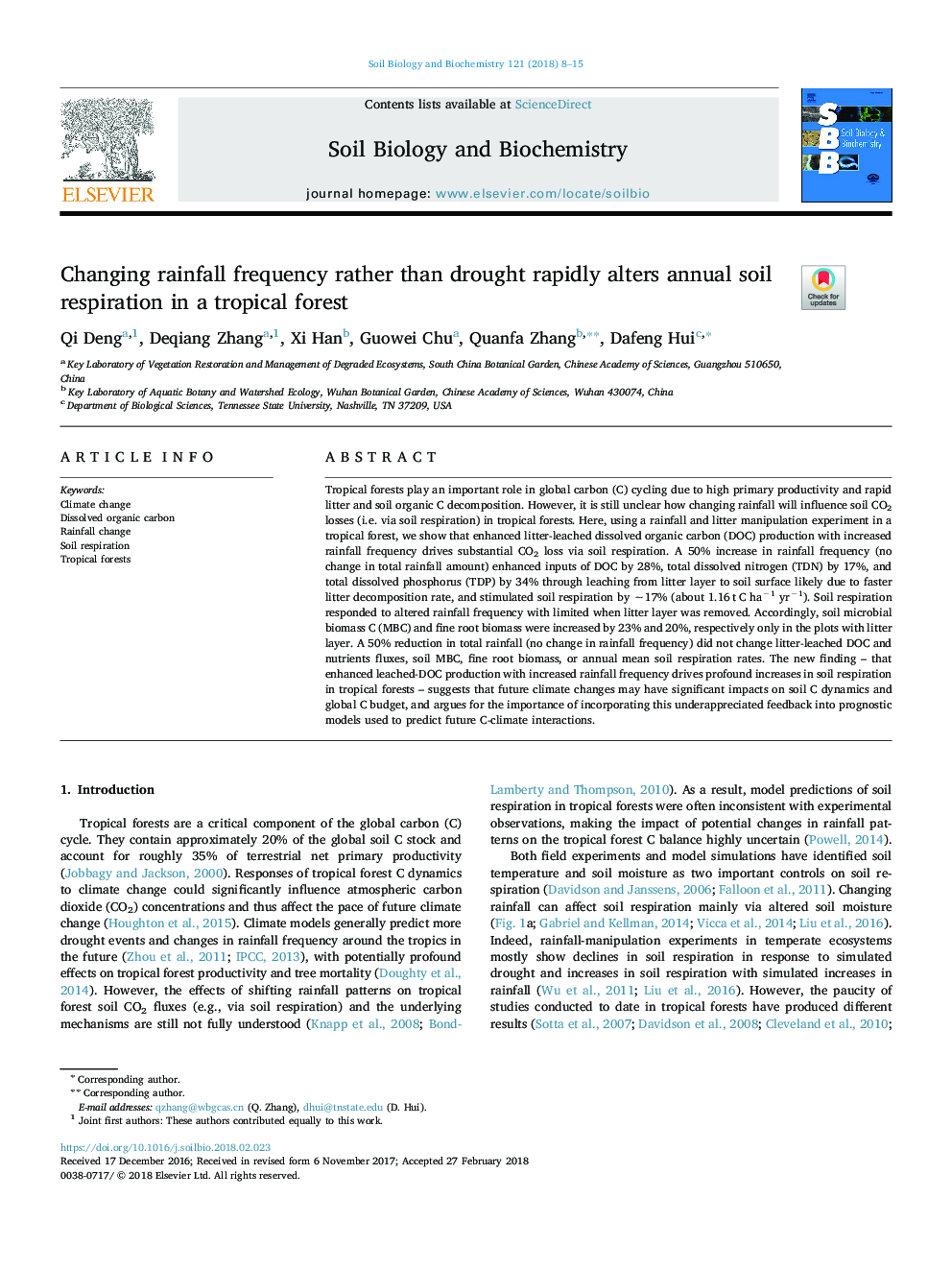| Article ID | Journal | Published Year | Pages | File Type |
|---|---|---|---|---|
| 8362746 | Soil Biology and Biochemistry | 2018 | 8 Pages |
Abstract
Tropical forests play an important role in global carbon (C) cycling due to high primary productivity and rapid litter and soil organic C decomposition. However, it is still unclear how changing rainfall will influence soil CO2 losses (i.e. via soil respiration) in tropical forests. Here, using a rainfall and litter manipulation experiment in a tropical forest, we show that enhanced litter-leached dissolved organic carbon (DOC) production with increased rainfall frequency drives substantial CO2 loss via soil respiration. A 50% increase in rainfall frequency (no change in total rainfall amount) enhanced inputs of DOC by 28%, total dissolved nitrogen (TDN) by 17%, and total dissolved phosphorus (TDP) by 34% through leaching from litter layer to soil surface likely due to faster litter decomposition rate, and stimulated soil respiration by â¼17% (about 1.16â¯tâ¯C haâ1 yrâ1). Soil respiration responded to altered rainfall frequency with limited when litter layer was removed. Accordingly, soil microbial biomass C (MBC) and fine root biomass were increased by 23% and 20%, respectively only in the plots with litter layer. A 50% reduction in total rainfall (no change in rainfall frequency) did not change litter-leached DOC and nutrients fluxes, soil MBC, fine root biomass, or annual mean soil respiration rates. The new finding - that enhanced leached-DOC production with increased rainfall frequency drives profound increases in soil respiration in tropical forests - suggests that future climate changes may have significant impacts on soil C dynamics and global C budget, and argues for the importance of incorporating this underappreciated feedback into prognostic models used to predict future C-climate interactions.
Related Topics
Life Sciences
Agricultural and Biological Sciences
Soil Science
Authors
Qi Deng, Deqiang Zhang, Xi Han, Guowei Chu, Quanfa Zhang, Dafeng Hui,
